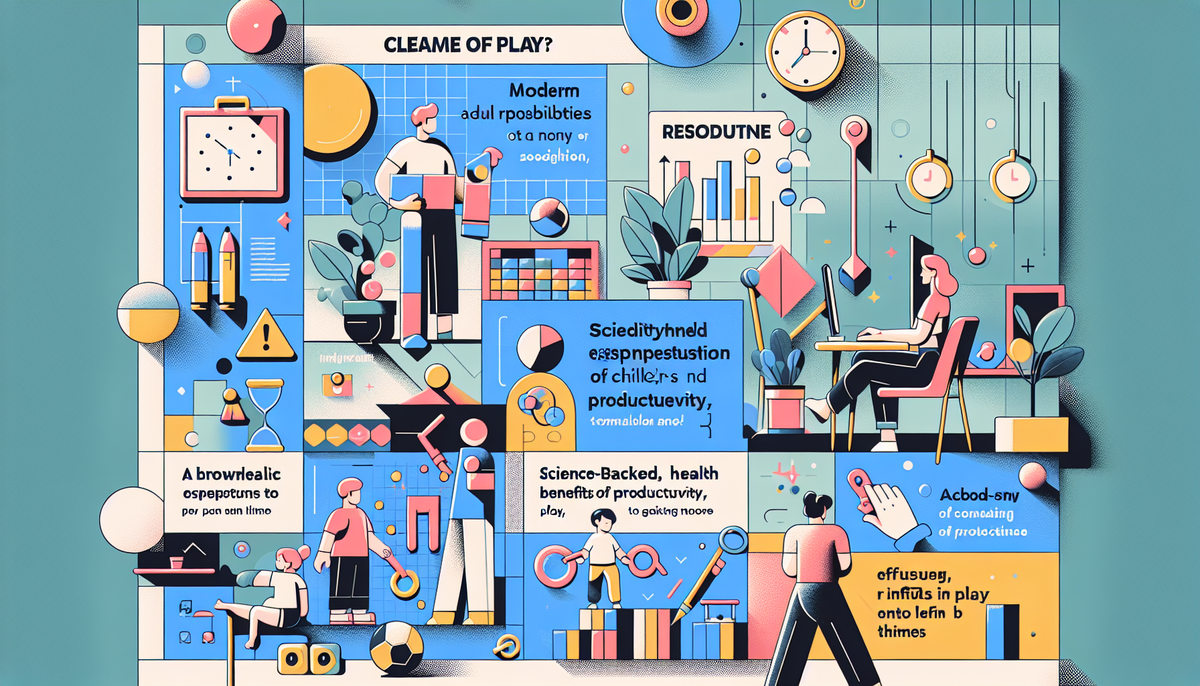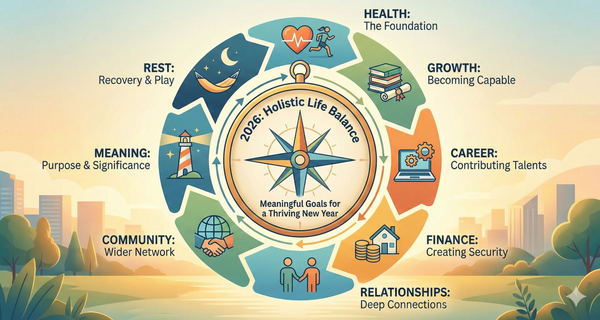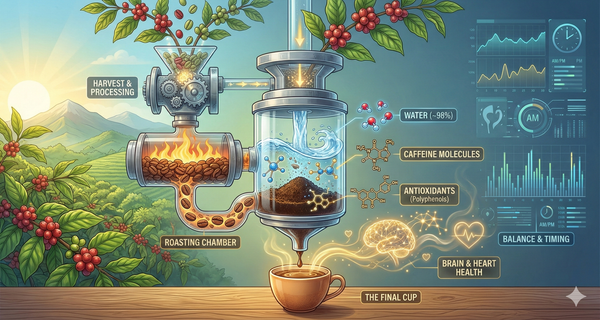Why Play Isn’t Just for Kids

Why Play Isn’t Just for Kids
In a world that constantly glorifies productivity and hustle, the idea of “play” for adults is often dismissed as a frivolous luxury. We associate play with childhood—a carefree time of unstructured fun and imagination. But what if we told you that play is not just for kids? What if it's an essential ingredient for a healthy, happy, and successful adult life? This article will explore the importance of play and why you should make recreational time a non-negotiable part of your routine.
The Modern Adult's Dilemma: Drowning in Responsibilities
Life as an adult is a juggling act. We balance careers, family, finances, and a seemingly endless to-do list. In the midst of all these responsibilities, "fun" often gets relegated to the back burner. We see it as an indulgence, something to be earned after all the “important” work is done. But the truth is, our relentless pursuit of productivity is burning us out, leaving us stressed, uninspired, and disconnected from our own sense of joy.
Forgetting How to Have Fun
For many adults, the very concept of play feels foreign. We've been conditioned to believe that our value is tied to our output. Time spent on activities without a clear, productive goal can feel wasted or even generate guilt. This mindset is not only unhealthy but also counterproductive. It robs us of the very things that can refuel our energy, spark our creativity, and make life meaningful.
Redefining Play: It's More Than Just Games
When we talk about adult play, we're not necessarily referring to building sandcastles or playing tag (though you certainly can!). Play is a broad concept that encompasses any activity you engage in purely for the enjoyment of it. It’s about the process, not the outcome. It's a state of mind characterized by curiosity, improvisation, and a sense of freedom.
The Key Elements of Adult Play
Adult play can take countless forms, from painting and hiking to playing a musical instrument or joining a sports league. The key elements are that the activity is voluntary, intrinsically motivated (you do it because you want to, not because you have to), and allows you to step outside the rigid structures of your daily life. It’s about embracing a lighter, more exploratory side of yourself.
The Science-Backed Benefits of Recreational Time
The importance of play isn't just a philosophical idea; it's backed by science. Engaging in regular recreational time has profound effects on our mental, emotional, and even physical well-being. It's a powerful antidote to the stresses of modern life and a catalyst for personal growth.
Stress Reduction and Endorphin Release
When you engage in playful activities, your brain responds by lowering cortisol levels, the hormone associated with stress. At the same time, it releases endorphins, which are natural mood elevators. This powerful combination can significantly reduce feelings of anxiety and promote a sense of calm and happiness.
Boosting Creativity and Cognitive Function
Play is a workout for your brain. It stimulates imagination, encourages flexible thinking, and enhances problem-solving skills. When you're in a playful state, you're more open to new ideas and perspectives. This cognitive flexibility can lead to breakthroughs in both your personal and professional life. Studies have shown that play can even improve memory and prevent age-related cognitive decline.
Strengthening Social Bonds
Shared laughter and fun are the glue that holds relationships together. Engaging in playful activities with your partner, friends, or family can deepen your connection and foster a sense of intimacy. It creates a space where you can be yourselves, let your guard down, and build positive memories together. Shared recreational time is a powerful way to nurture your social support system.
How to Re-Introduce Play into Your Busy Life
Knowing that play is important is one thing; actually making time for it is another. The good news is that you don't need to overhaul your entire life to reap the benefits of play. It's about making small, intentional choices to prioritize your own well-being.
Schedule Your Fun Time
If your calendar is packed with work meetings and appointments, why not schedule in some fun? Treat your recreational time with the same importance as any other commitment. Block out time in your week for an activity you enjoy, whether it's an hour to read a novel, a morning to go for a bike ride, or an evening to play board games with friends.
Discover New Hobbies
If you're not sure what you find "playful," it might be time to explore some new hobbies. Think back to what you enjoyed as a child or try something you've always been curious about. The goal is to find an activity that engages you and brings you joy, without any pressure to be good at it. The simple act of learning and exploring can be a powerful form of play.
Embrace Spontaneity
Not all play needs to be scheduled. Leave room in your life for spontaneous moments of fun. Have a dance party in your kitchen, tell a silly joke, or take a detour on your way home to walk through a park. Embracing a more playful mindset can transform mundane moments into opportunities for joy and connection.
Conclusion: Reclaim Your Right to Play
In the grand scheme of things, play is not a distraction from the serious business of life—it's an essential part of it. It's a powerful tool for staying healthy, happy, and connected in a demanding world. By giving yourself permission to have fun, you're not being frivolous; you're investing in your own well-being. So go ahead, reclaim your right to play. Your mind, body, and soul will thank you for it.




